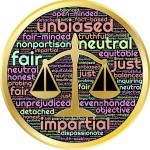What is Legal Malpractice?
Legal Malpractice involves a claim against an attorney or a law firm for wrongfully or negligently causing harm to a client by failing to provide proper legal representation. In essence, the lawyer failed to do something that should have been done or the Attorney did something that should not have been done. If it can be determined the attorney failed to exercise the necessary diligence and skill which should have been provided to the client and, the failure on the part of the attorney resulted in some clear economic or other damage, the attorney may be guilty of malpractice.
 Since there are certain requirements that must exist before pursuing a claim for legal malpractice, thought should be given to the underlying facts. In particular, the following questions should be explored: (1) Was there an agreement in place between the lawyer and the client showing the lawyer was retained? (2) Did the lawyer fail to exercise appropriate care and skill? and (3) Did the failure(s) by the lawyer result in identifiable harm or damage to the client?
Since there are certain requirements that must exist before pursuing a claim for legal malpractice, thought should be given to the underlying facts. In particular, the following questions should be explored: (1) Was there an agreement in place between the lawyer and the client showing the lawyer was retained? (2) Did the lawyer fail to exercise appropriate care and skill? and (3) Did the failure(s) by the lawyer result in identifiable harm or damage to the client?
How Can I Find Out if My Attorney Committed Legal Malpractice?
Generally speaking, the determination by a client as to whether a given attorney committed legal malpractice is difficult. Consequently, the best way to answer that question is to speak with another attorney who handles malpractice cases. Once the file is obtained, the attorney can review all aspects of your case and render an opinion as to whether the previous attorney committed legal malpractice.
How is an Attorney/Client Relationship Created?
 In most circumstances, the attorney/client relationship can be established through a course of conduct between the parties. For example, the first step is to determine if advice or assistance from the attorney was sought by an individual or business.
In most circumstances, the attorney/client relationship can be established through a course of conduct between the parties. For example, the first step is to determine if advice or assistance from the attorney was sought by an individual or business.
At that point, a contract may exist. The relationship can also be defined through the existence of an express written contract, engagement letter, or through the existence of an email exchange between the parties.
Is it True an Attorney/Client Relationship Must Exist to Successfully Pursue a Legal Malpractice Claim?
The answer is a qualified “yes”. The first element of a legal malpractice claim requires the plaintiff to prove that he or she had existing lawyer/client relationship with the attorney accused of being negligent. In the event no such formal relationship existed, the client may still be able to pursue a claim under very limited circumstances. These situations are fact specific. By way of example, a claim for negligent misrepresentation against an attorney may arise when an attorney incorrectly or improperly gives false or misleading information to third persons who then rely on that information to their detriment and some type of economic or other injury results.
Is There a Difference Between Legal Malpractice and Bad Strategy?
 If a lawyer goes forward in good faith but, approaches a case using a bad strategy which does not help the client, it will likely be insufficient to prove a legal malpractice claim, since hindsight is always 20/20 and an attorney has some discretion in deciding the approach to any case. Only in those circumstances where any reasonable attorney would not choose the same strategy or approach, would a possible legal malpractice claim exist.
If a lawyer goes forward in good faith but, approaches a case using a bad strategy which does not help the client, it will likely be insufficient to prove a legal malpractice claim, since hindsight is always 20/20 and an attorney has some discretion in deciding the approach to any case. Only in those circumstances where any reasonable attorney would not choose the same strategy or approach, would a possible legal malpractice claim exist.
How Do I Prove That My Attorney’s Negligence Caused My Damages?
It is always best, when considering a lawsuit, to consult with an experienced malpractice attorney regarding potential claims against another attorney. In order to successfully pursue a claim for legal malpractice, a client must prove that the attorney breached the standard of care and caused verifiable damages to the client. In essence, “But for” the attorney’s actions, the result would have been different.
If the injury would have occurred anyway, no claim against the attorney exists for his errors, unless additional damages can be proved. The damages must be foreseeable – not speculative. One must be able to point to specific conduct on the part of the attorney which caused the damages.
Do I Have To Prove Both Cases?
In a litigation situation, where it is claimed an attorney committed legal malpractice by failing to properly represent a client during a lawsuit, the client is required to prove the merits of the underlying (first case) and must also prove that his attorney was negligent in the handling of that case which adversely affected the outcome.
Is My Consultation With Another Attorney Confidential, Although it Concerns My Prior Attorney’s Conduct and the Possibility of a Legal Malpractice Case?
 Yes. Ethically, the attorney with whom you speak should have no contact with your prior lawyer regarding the consultation, unless it is done with your permission. All attorneys must keep discussions and information about a client or potential client confidential.
Yes. Ethically, the attorney with whom you speak should have no contact with your prior lawyer regarding the consultation, unless it is done with your permission. All attorneys must keep discussions and information about a client or potential client confidential.
What Are My damages in a Legal Malpractice Case?
The damages suffered by a client are case specific and vary depending upon the facts. In a typical case, the client is entitled to recover the amount he lost because of the attorney’s error, as long as it can be shown to be related to the attorney’s negligence.
 In some circumstances, a client may recover punitive or exemplary damages from an attorney who has intentionally harmed the client. The recovery may also include legal fees paid by the client to the attorney, as well as other litigation related expenses in bringing the legal malpractice claim.
In some circumstances, a client may recover punitive or exemplary damages from an attorney who has intentionally harmed the client. The recovery may also include legal fees paid by the client to the attorney, as well as other litigation related expenses in bringing the legal malpractice claim.
Are All Attorneys Required to Have Insurance Coverage for Legal Malpractice Claims?
No, Attorneys are under no obligation to obtain malpractice coverage.
